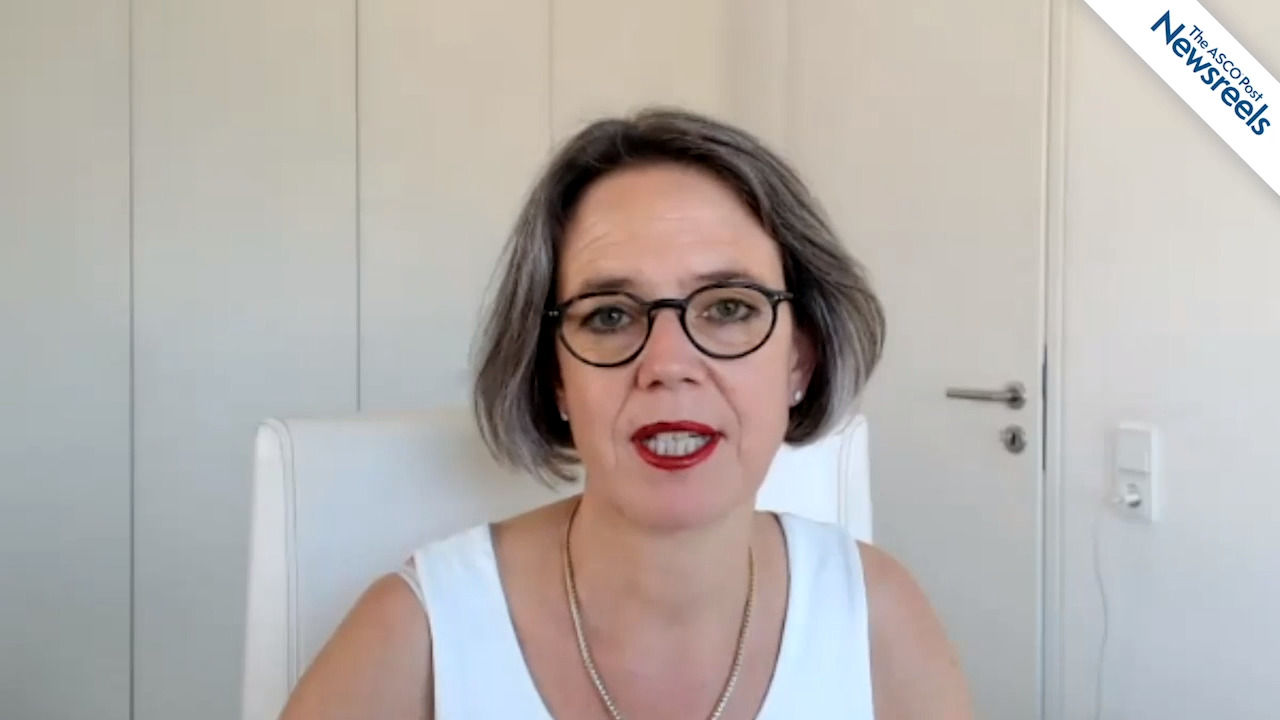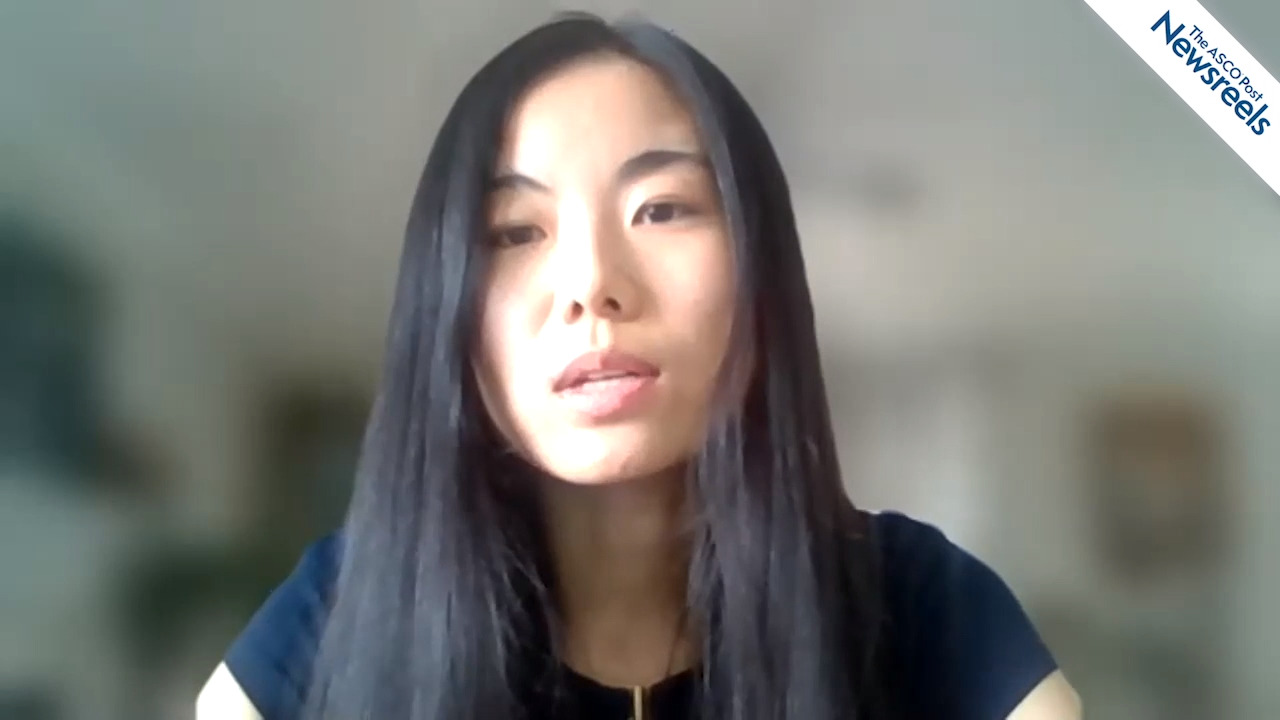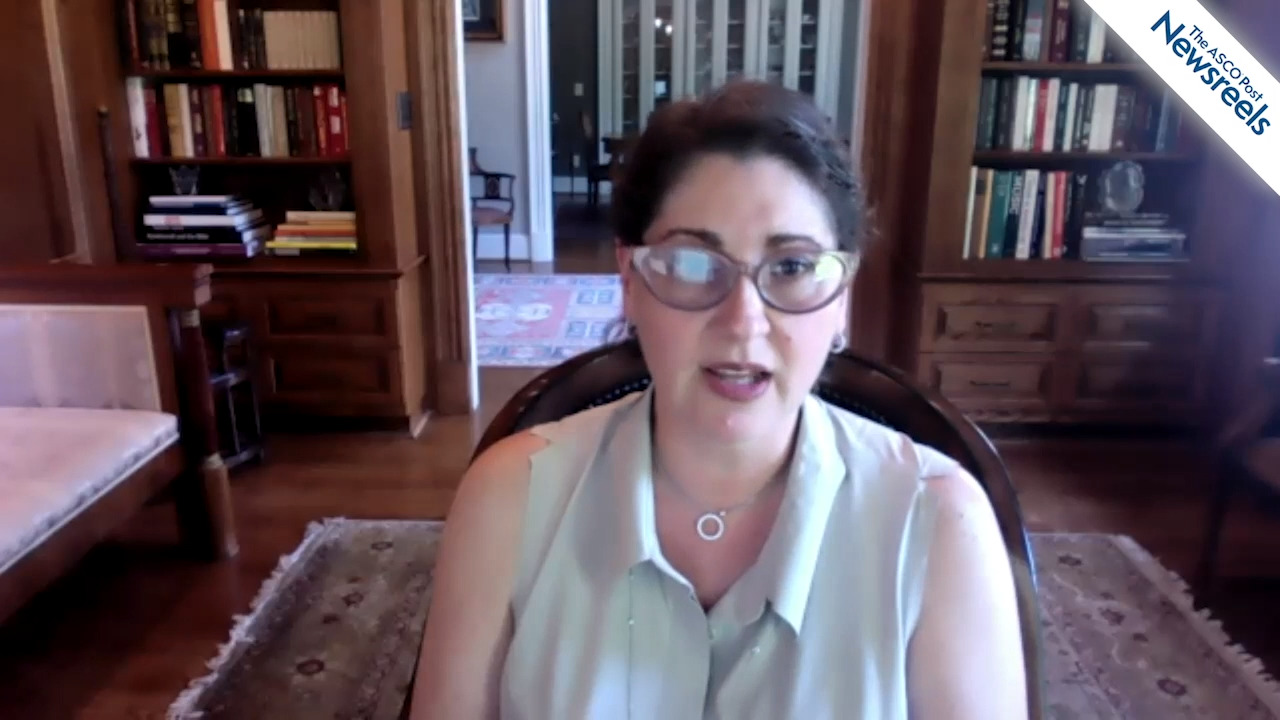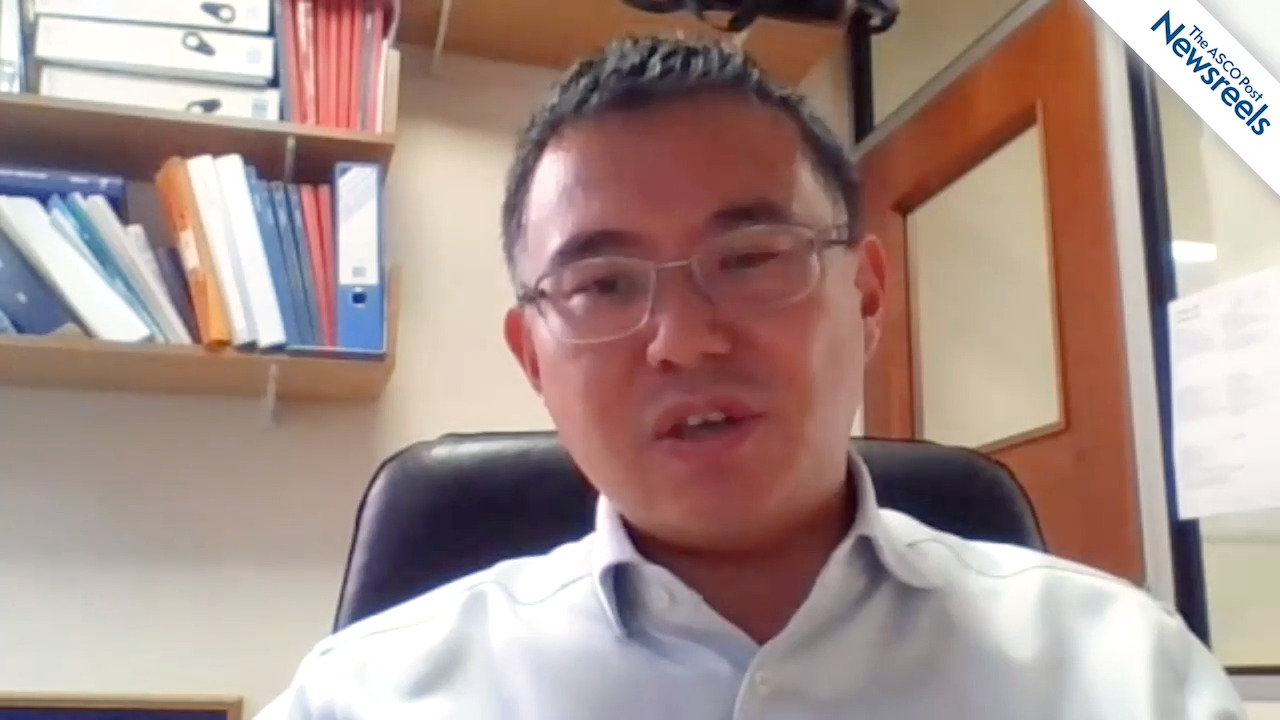Toni K. Choueiri, MD, on Renal Cell Carcinoma: Pembrolizumab vs Placebo in Adjuvant Treatment
2021 ASCO Annual Meeting
Toni K. Choueiri, MD, of Dana-Farber Cancer Institute, discusses phase III results from KEYNOTE-564, which evaluated the safety and efficacy of pembrolizumab in the adjuvant treatment of patients with renal cell carcinoma who have undergone nephrectomy for intermediate-high or high-risk disease or no evidence of disease (Abstract LBA5).
The ASCO Post Staff
Sibylle Loibl, MD, PhD, of the German Breast Group, discusses results from the phase III GeparNUEVO study, which investigated neoadjuvant durvalumab in addition to anthracycline/taxane-based neoadjuvant chemotherapy in patients with early triple-negative breast cancer (Abstract 506).
The ASCO Post Staff
Jingxuan Zhao, MPH, of the American Cancer Society, discusses study findings that showed worse long-term survival among low-income patients with cancer who live in states that have not expanded Medicaid eligibility (Abstract 6512).
The ASCO Post Staff
Ingrid A. Mayer, MD, of Vanderbilt University Medical Center, discusses phase III results from a trial that showed patients with triple-negative breast cancer who had residual invasive disease after neoadjuvant chemotherapy had lower-than-expected invasive disease–free survival, regardless of study treatment with platinum-based chemotherapy or capecitabine (Abstract 605).
The ASCO Post Staff
Peter C. Black, MD, of the Vancouver Prostate Centre, University of British Columbia, reviews three studies on early detection and treatment of Black patients with prostate cancer: a large-scale analysis of genomic profiling; the use of PSA screening; and integrating a patient-specific genomic classifier to improve risk classification and treatment recommendations for Black men (Abstracts 5003, 5004, and 5005).
The ASCO Post Staff
Ian Chau, MD, of Royal Marsden NHS Foundation Trust, discusses first results of the CheckMate 648 study, which showed that nivolumab plus chemotherapy and nivolumab plus ipilimumab both demonstrated superior overall survival vs chemotherapy alone in patients with advanced esophageal squamous cell carcinoma. These regimens may represent potential new first-line treatment options (Abstract 4001).





